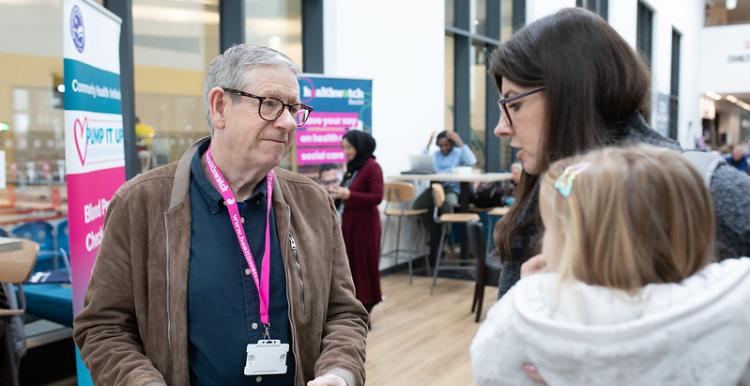ADHD: what support can I get?

Symptoms of ADHD tend to be noticed at an early age and may become more noticeable when a child's circumstances change, such as when they start school.
Most cases are diagnosed when children are under 12 years old, but sometimes it's diagnosed later in childhood.
Sometimes ADHD was not recognised when someone was a child, and they are diagnosed later as an adult.
The symptoms of ADHD may improve with age, but many adults who were diagnosed with the condition at a young age continue to experience problems.
People with ADHD may also have additional problems, such as sleep and anxiety disorders.
Getting help
Many children go through phases where they're restless or inattentive. This does not necessarily mean they have ADHD.
But you should discuss your concerns with your child's teacher, their school's special educational needs co-ordinator (SENCO) or a GP if you think their behaviour may be different from most children their age.
It's also a good idea to speak to a GP if you're an adult and think you may have ADHD, but were not diagnosed with the condition as a child.
How attention deficit hyperactivity disorder (ADHD) is treated
For children with ADHD, although there's no cure, it can be managed with appropriate educational support, advice and support for parents and affected children, alongside medicine, if necessary.
For adults with ADHD, medicine is often the first treatment offered, although psychological therapies may also help.
Living with attention deficit hyperactivity disorder (ADHD)
Parents of children with ADHD
Some day-to-day activities might be more difficult for you and your child, including:
- getting your child to sleep at night
- getting ready for school on time
- listening to and carrying out instructions
- being organised
- social occasions
- shopping
Adults with ADHD
Adults with ADHD may find they have problems with:
- organisation and time management
- following instructions
- focusing and completing tasks
- coping with stress
- feeling restless or impatient
- impulsiveness and risk taking
Some adults may also have issues with relationships or social interaction.
Ways to cope for parents of children with ADHD
Although it can be difficult at times, it's important to remember that a child with ADHD cannot help their behaviour. People with ADHD can find it difficult to suppress impulses, which means they may not stop to consider a situation, or the consequences, before they act.
If you're looking after a child with ADHD, you may find this advice helpful.
- Plan the day so your child knows what to expect. Set routines can make a difference to how a child with ADHD copes with everyday life.
- Set clear boundaries so everyone knows what behaviour is expected, and reinforce positive behaviour.
- Exercise can help your child use their energy productively and improve their quality of sleep.
- Help at school, speak to your child's teachers or their school's special educational needs co-ordinator (SENCO) about any extra support your child may need.
Adults with ADHD
If you're an adult living with ADHD, you may find the following advice useful:
- if you find it hard to stay organised, then make lists, keep diaries, stick up reminders and set aside some time to plan what you need to do
- let off steam by exercising regularly
- find ways to help you relax, such as listening to music or learning breathing exercises for stress
- if you have a job, speak to your employer about your condition, and discuss anything they can do to help you work better
- if you're at college or university, ask about what adjustments can be made to support you, such as extra time to complete exams and coursework
- talk to a doctor about your suitability to drive, as you'll need to tell the Driver and Vehicle Licensing Agency (DVLA) if your ADHD affects your driving
- contact or join a local or national support group – these organisations can put you in touch with other people in a similar situation and can be a good source of support, information and advice.
ADHD and Work
ADHD can create challenges for adults in the workplace. Devon Adult Autism and ADHD service have come up with a helpful guide on navigating ADHD in the workplace, information on your rights at work and where to get further help.
Mental health support
Greenwich Time to Talk offers support for people over 16 experiencing mild problems of anxiety or depression. You can self-refer into the service.
I am not sure what support I am looking for
The Attention Deficit Disorder Information and Support Service (ADDISS) offers information and support on ADHD and related learning and behaviour disorders.
Call them on 020 8952 2800 or visit their website at addiss.co.uk
Original article published on: Attention deficit hyperactivity disorder (ADHD) - NHS (www.nhs.uk)


